 |
 |
 |
 |
 |
 |
 |
 |
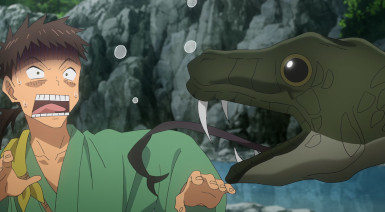 |
 |
 |
 |
 |
 |
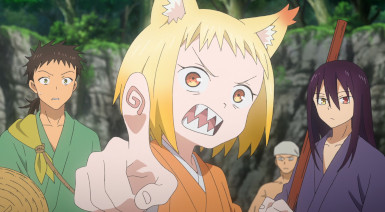 |
 |
 |
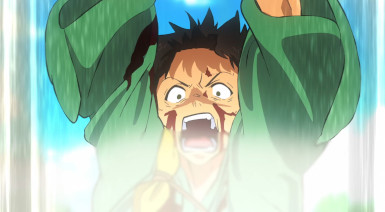 |
 |
 |
 |
 |
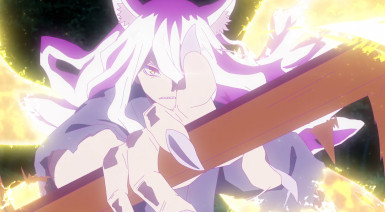 |
 |
 |
 |
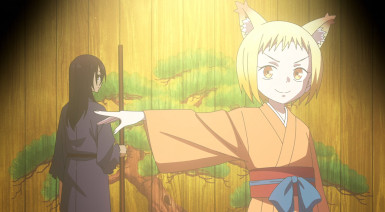 |
 |
 |
 |
 |
 |
 |
 |
 |
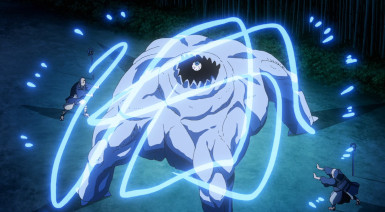 |
 |
 |
 |
「我ら乱世を憂う者」 (Warera ranse o ureu mono)
“Those Who Worry For This Troubled Time”
Anime is suffering, if you’re a Mizukami Satoshi fan. One of the foremost mangaka of the past thirty years, creator of three genuine classics (one of them among the finest manga ever written), widely and deeply admired within the industry – you’d think the Water God would have been treated like royalty by anime. But no, he’s gotten the royal flush – and I don’t mean in the poker sense. Until 2018’s Planet With nothing written by Mizukami had ever been made into anime. And until 2023’s (shudder) adaptation of Hoshi no Samidare, none of his manga had ever been adapted.
You’d think all that would be bad enough, but anime inflicted the indignity of one of the worst adaptations ever with Biscuit Hammer, truly execrable. The hatchet job Naz and the production committee did on that series inflicted a lot of karmic damage, undoing whatever good feeling the relatively good original production Planet With had engendered. So truthfully, while it’s not fair to inflict that sort of pressure on it, Sengoku Youko is a chance at redemption. If there’s any justice in the world, it will finally be the Mizukami series his fans – and even more so the man himself – have so long waited for.
Early signs are positive, which after Samidare is a helluva change. Apparently one of those admirers the Water God has in the industry is White Fox president Iwasa Gaku, which hopefully means Sengoku Youko will get the best White Fox can possibly offer. Iwasa may have been responsible for the series being upgraded from two cours to the three (37 episodes) it needs to have a reasonably complete adaptation (though I’d also heard that it was the writer in charge, the influential Hanada Jukki, who insisted on it). I also dare hope that Iwasa’s patronage might mean an eventual adaptation for Spirit Circle, which is truly Mizukami’s magnum opus (and would be the easiest of his three main series to adapt on a modest budget).
Obviously I’m not going to spoil specific plot details, but I do think it’s relevant to mention that reportedly if the series had been two cours, the arc it focused on would not have been the first one. To me that makes perfect sense, because the intro arc is not the best material Sengoku has to offer. It’s damn good, don’t get me wrong – but this is very much a series where patience will be rewarded, because there are significant changes over the course of the narrative and it’s only with what will become the second cour that the series in my view becomes truly great.
So, after that long preamble, let’s dig into the story. The date is 1564 (the Sengoku Period, naturally), and the first character we meet is young ronin Shinsuke (Kimura Ryouhei). He’s somewhat timidly staking out a band of brigands when he sees them confronted by a very strange pair, a black-haired youth named Jinka (Saitou Souma), and a fair-haired little girl named Tama (Takada Yuuki). The boy uses some sort of magic to incapacitate the bandits – much to the irritation of Tama, who planned to interrogate them for the location of their leader. Shinsuke, ever drawn to powerful fighters he can learn from, follows them, but he’s no ninja when it comes to disguising his presence.
There’s a lot of terminology thrown around here, but that’s exactly how things start out in the manga too. In this mythology there are katawara, a term Mizukami uses to broadly encompass what we commonly see called youkai, as well as ayakashi and ghosts. Jinka – who calls himself a sendou, ascetic sage – is, in short, a human who hates humans and likes katawara. Tama is a katawara – a fox demon who calls herself a youko – who loves humans. Jinka calls Tama Aneue (Elder Sister) despite her childish appearance. And when forced to battle, the pair engage in a spirit transformation, which imbues Jinka with great spiritual power.
Also critical here are the Dangaisyuu, the warrior monks who roam the land exterminating katawara who threaten or hurt humans. Tama asserts that they’ll only attack katawara who have malicious intent towards humans (leaving her free and clear), and it’s pretty obvious that such katawara do pose a significant threat. The leader of the bandits turns out to be a katawara, in fact, which puts Jinka in the uncomfortable position of attacking one, but they defeat it easily. A larger and more dangerous one draws the Dangaisyuu into the fight after one of their number is killed doing battle with it.
That’s the basic setup to start with. Shinsuke is a small man with courage trying to make a name for himself in the world. Tama and Jinka call themselves “world reform siblings” out to fight cruelty and injustice (of which the Sengoku had no shortage), and this is their arc – Yonaoshi Kyodai-hen. But this is a very big world Mizukami has created and that’s really just the tip of the iceberg. if I’m completely honest it took some time for me to really get swept up in the story with the manga, so I won’t be surprised if a lot of anime-only viewers feel the same way, but trust me – this is all going somewhere pretty special.
As for the adaptation, all I can really say is that it’s many orders of magnitude better than Hoshi no Samidare (as low a bar as that is). The budget doesn’t seem huge, but there’s little to no CGI and the animation and art are pretty on-point. There’s a good amount of style to this episode, in fact – it has flair. And a soundtrack by Evan Call, which certainly doesn’t hurt. The casting is all solid so far too, with Kimura as always a particular standout as a character who has much more to him than it might appear at first. It’s quite surreal, seeing Mizukami’s pages brought to the screen as they deserve after so many years of frustration. Anime-wise this is only the beginning for Sengoku Youko and, I sincerely hope, for Mizukami.
Preview
 |

I am trying to find words to describe why I like Sengoku Youko and am struggling. Sengoku Youko is just a good Anime.
If you are looking for a single word: “Douren”, jokes aside, Sengoku Youko is such a great manga, the characters feel “real”… maybe real is not the right word, but they have clear motivations and goal, and you can feel their growth and its nice seeing some of them changing goals, then the different perspectives and ideals… ah such a great manga.
But I am sure people are going to complain about it feeling dated or slow compared to modern stories/shows
And best character S***a hasn’t even appeared yet.